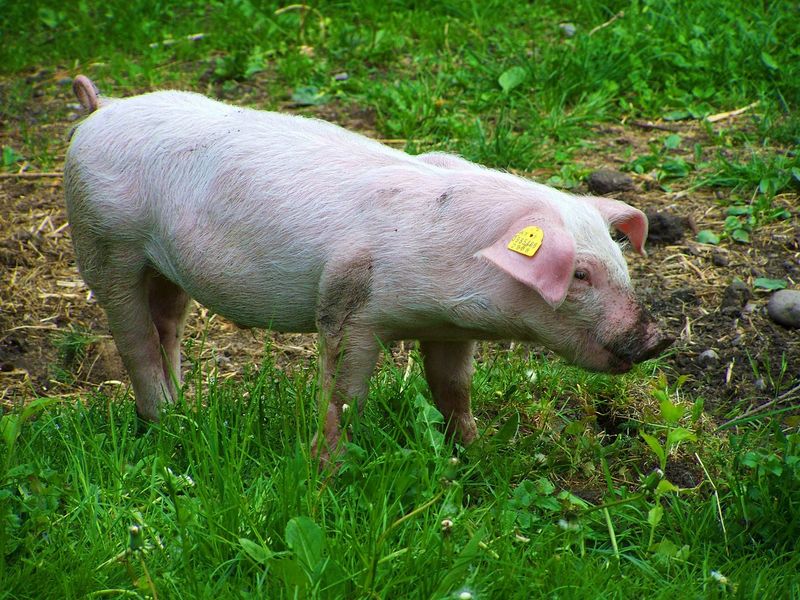
Published in News
Croatia’s Pig Scandal: Who Ordered the Mass Killing of 10,000 Healthy Animals—and Why?
A shocking political and agricultural scandal is unfolding in Croatia, as government insiders investigate who ordered the mass culling of 10,000 apparently healthy pigs on one of the country’s largest farms—and whether powerful business and political networks stood to benefit.

A National Crisis Over a Single Test
In a case that has shaken Croatia’s political scene, investigators are trying to determine who authorized the killing and burning of around 10,000 pigs at a major farm in Baranja—despite evidence suggesting that the animals were healthy. The official reason was an outbreak of African swine fever, but according to sources close to the government, the decision was made based on a single positive test result.
The farm in question, located in the village of Sokolovac and owned by food industry giants Belje and Podravka, is considered part of the country’s critical agricultural infrastructure, supplying a significant portion of Croatia’s pork. The decision to destroy the herd, critics say, not only devastated production but also sent a dangerous message: if even the most advanced farms aren’t safe, the entire national food system could be at risk.
Political Shockwaves
Sources within the ruling Croatian Democratic Union (HDZ) suspect that leaders of the right-wing Homeland Movement (Domovinski pokret)—specifically party president Ivan Penava and Agriculture Minister David Vlajčić—may have deliberately exaggerated the threat of the disease. According to these insiders, the move could have been a calculated political strike, designed to manipulate the system and favor certain business interests.
Investigators are now focusing on who blocked additional testing that could have confirmed or disproved the infection before the cull. “There was only one test, one positive result, and then a rush to kill and burn everything,” one government source told the weekly Nacional.
Business Networks and Political Influence
The scandal extends beyond politics and into the world of business. The same sources claim that figures close to the powerful Prsten Association, a network of influential entrepreneurs and politicians, may have financed members of the Homeland Movement to secure favorable treatment in the agricultural sector. Among those reportedly connected are prominent businessmen Pavo Zubak and Marko Pipunić, owner of the Žito Group.
According to the allegations, the rapid destruction of the pig herd could have been part of a broader plan to clear the way for new investors linked to these networks.
Evidence and Growing Doubts
Adding to the controversy, a mobile phone video reportedly shown to Prime Minister Andrej Plenković appears to depict pigs on the Sokolovac farm that were active, healthy, and showed no signs of disease. Independent agricultural experts have since stated that even if one pig had tested positive, proper biosecurity measures should have isolated the case rather than trigger a mass cull.
“The decision was unnecessary and reckless,” said one livestock expert. “The pigs were kept in separate facilities—there was no reason to destroy them all.”
Behind the Scenes: Political Games or Public Safety?
Within HDZ, some officials suspect the Homeland Movement used the outbreak to promote a narrative of foreign sabotage, claiming the virus had been deliberately introduced from Serbia or Bosnia. Prime Minister Plenković reportedly ordered party members to stop spreading such theories and instead focus on verifying the facts.
Now, investigators are asking whether the outbreak was fabricated, exaggerated, or misused for political and financial gain. As one senior source put it:
We may find that 10,000 healthy animals were killed for reasons that had nothing to do with animal health.
The Bigger Picture
The case has exposed deep fractures within Croatia’s ruling coalition and raised questions about corruption, food security, and political influence. It also highlights the power of informal business networks that shape both government policy and economic opportunity in eastern Croatia.
Whether the culling was a tragic mistake or a deliberate act of manipulation, the consequences are already severe: a blow to the nation’s pork industry, a crisis of trust in public institutions, and the unsettling possibility that political ambition—not disease—was behind one of Croatia’s largest agricultural disasters.
